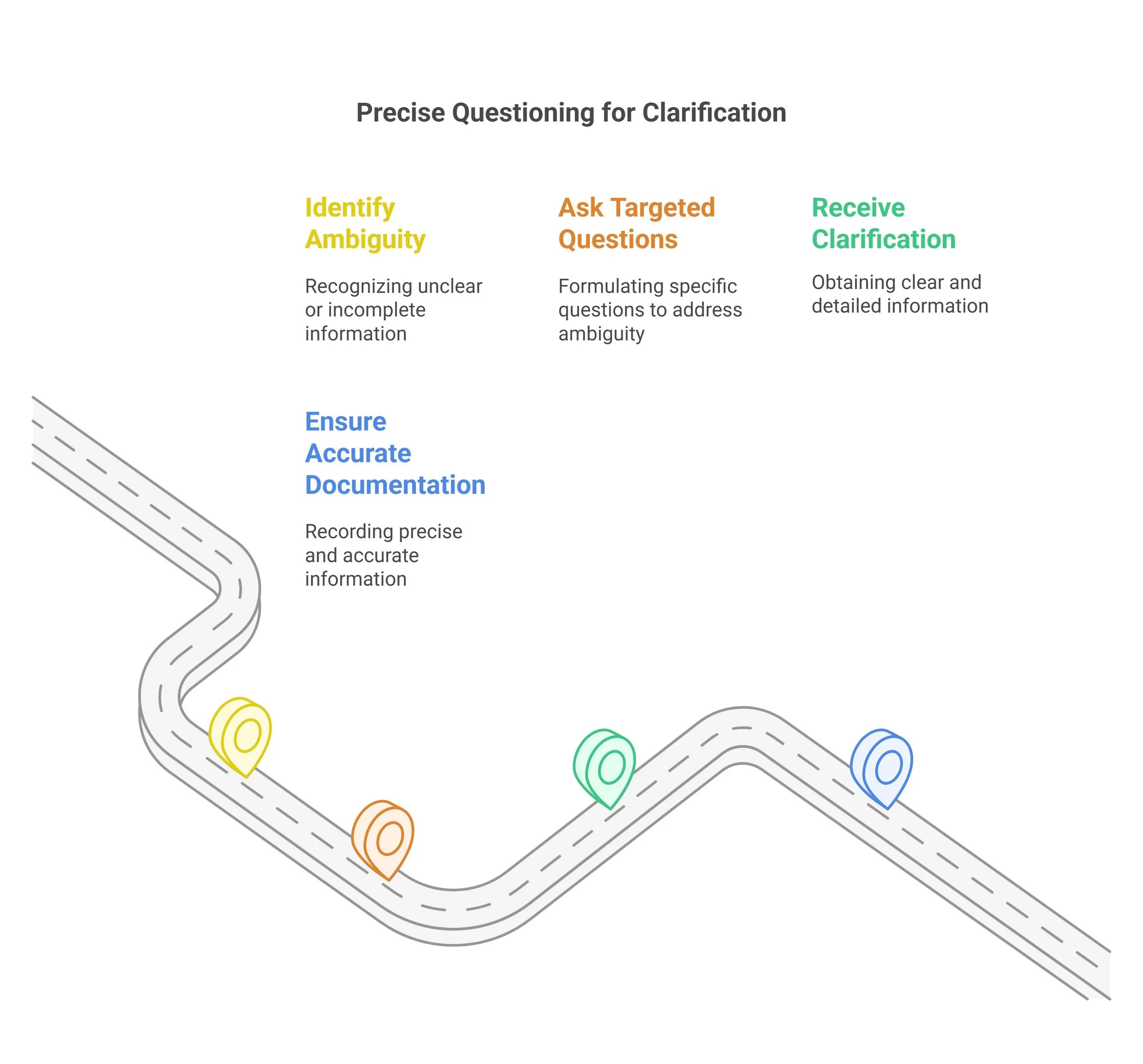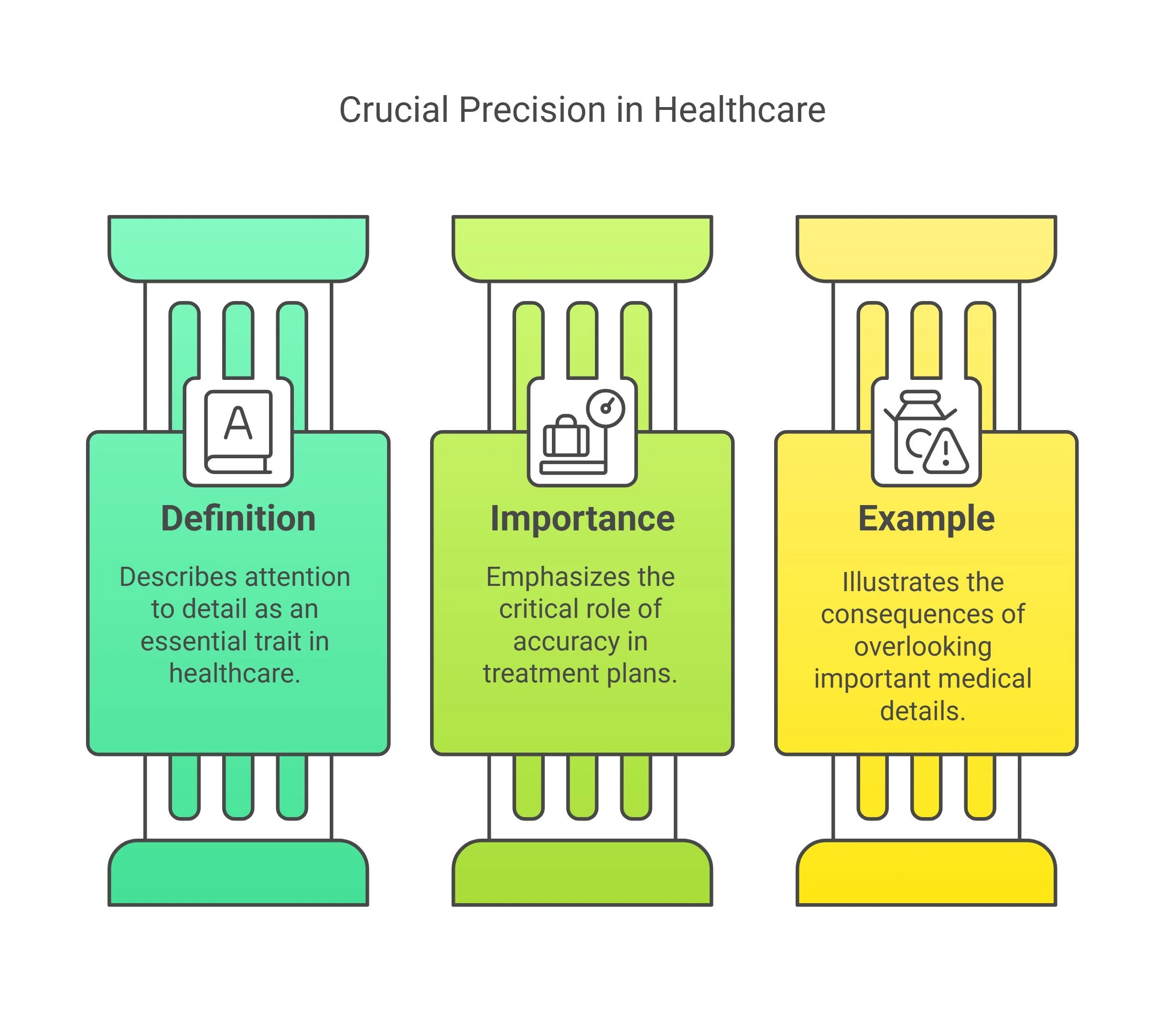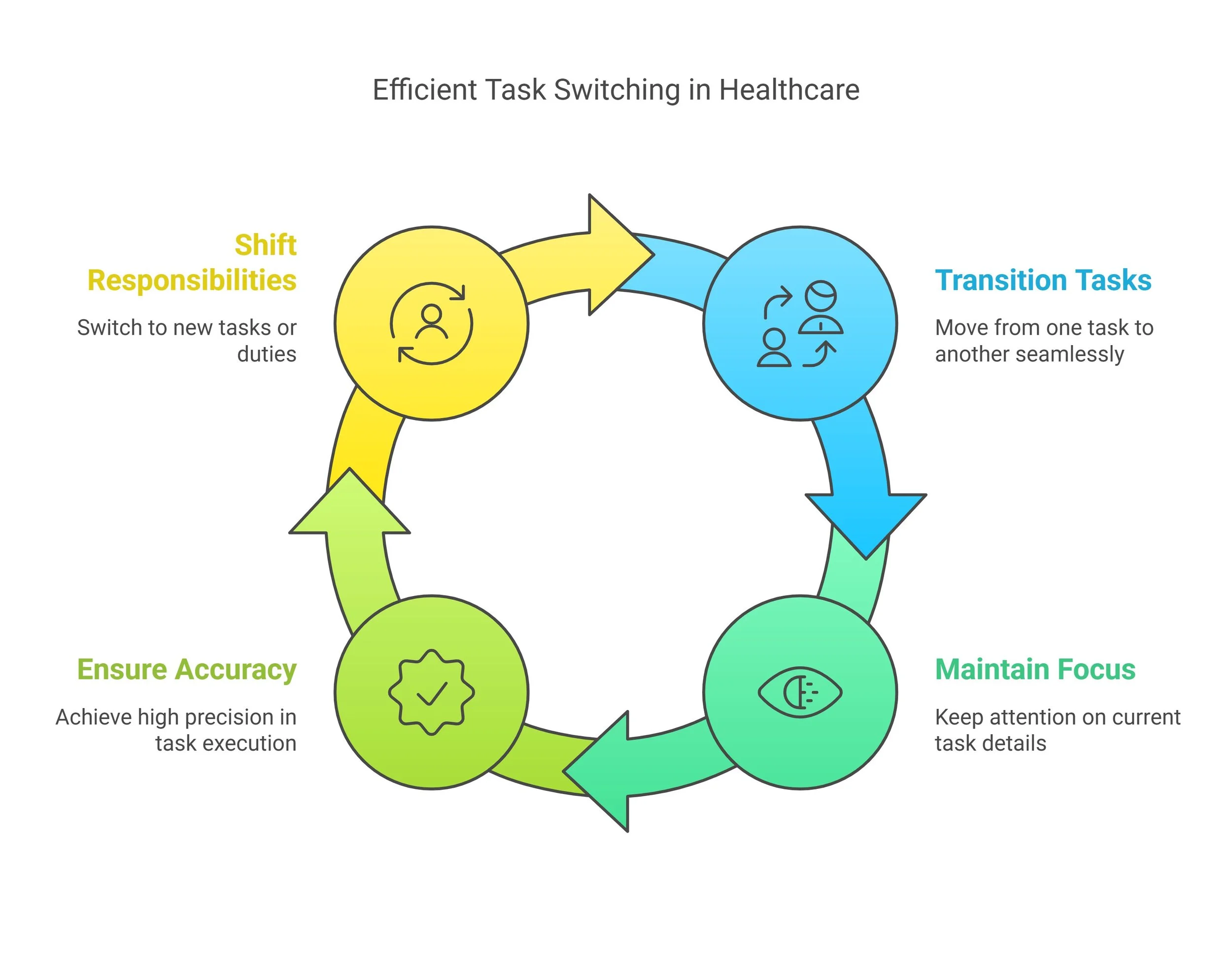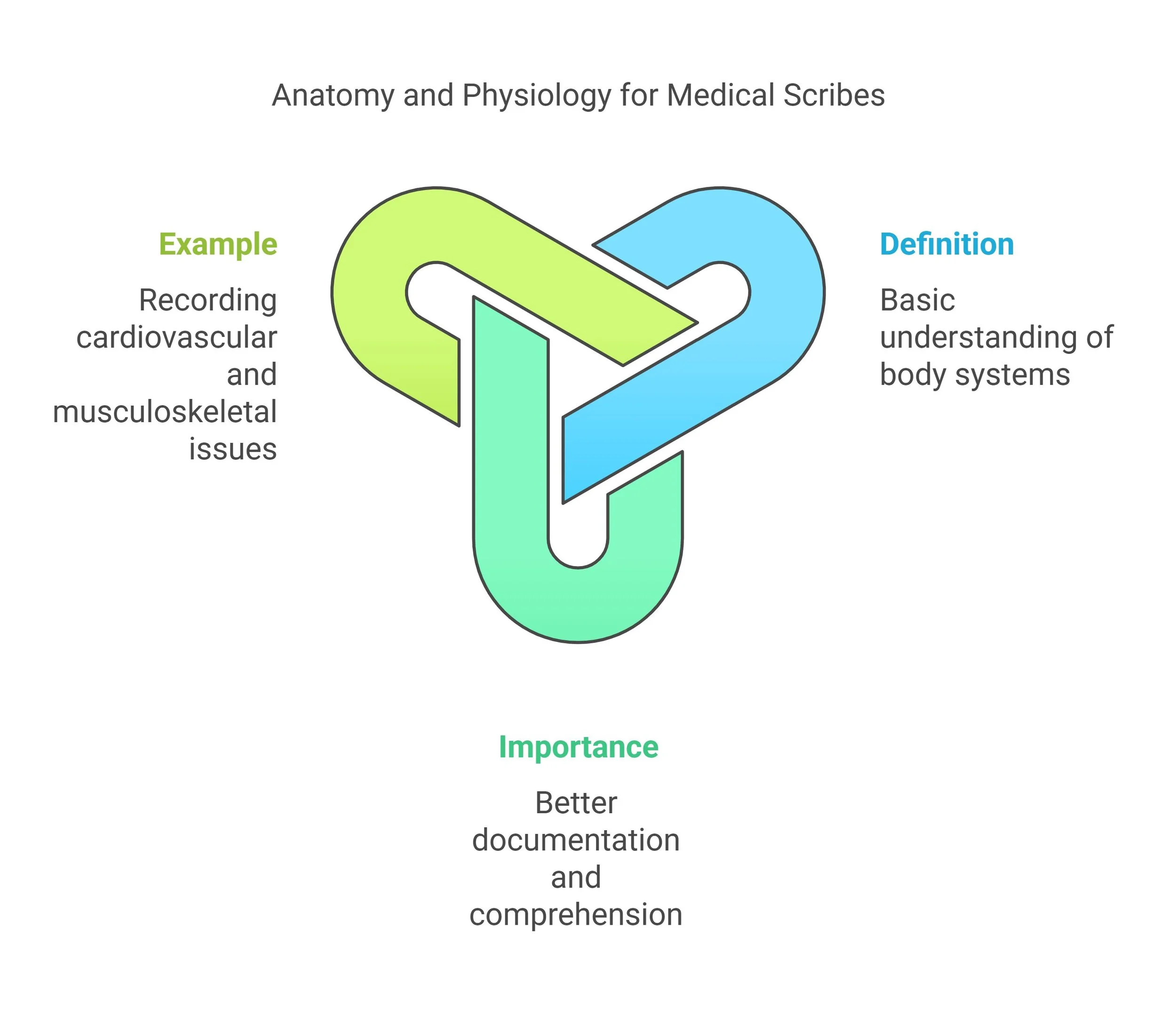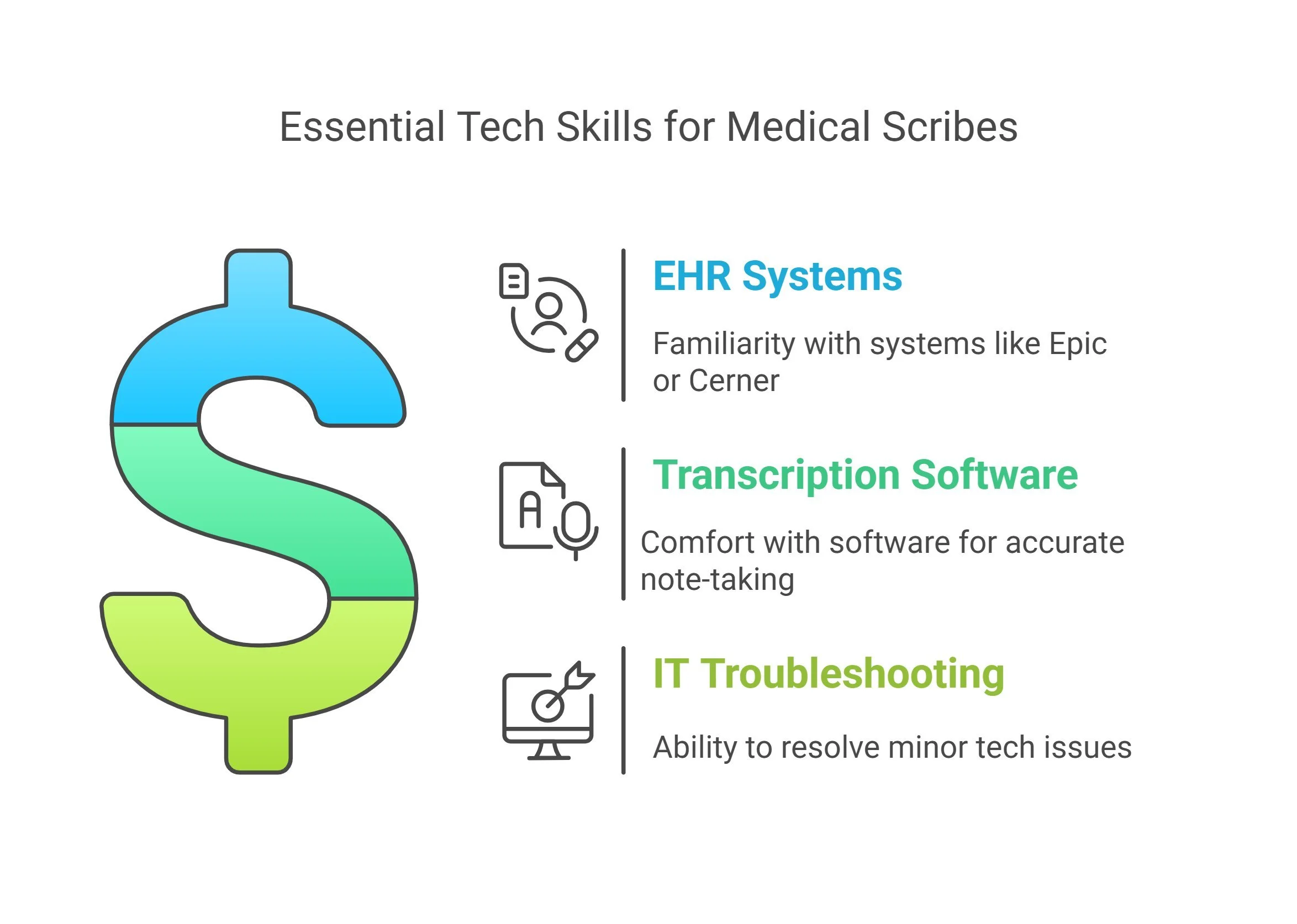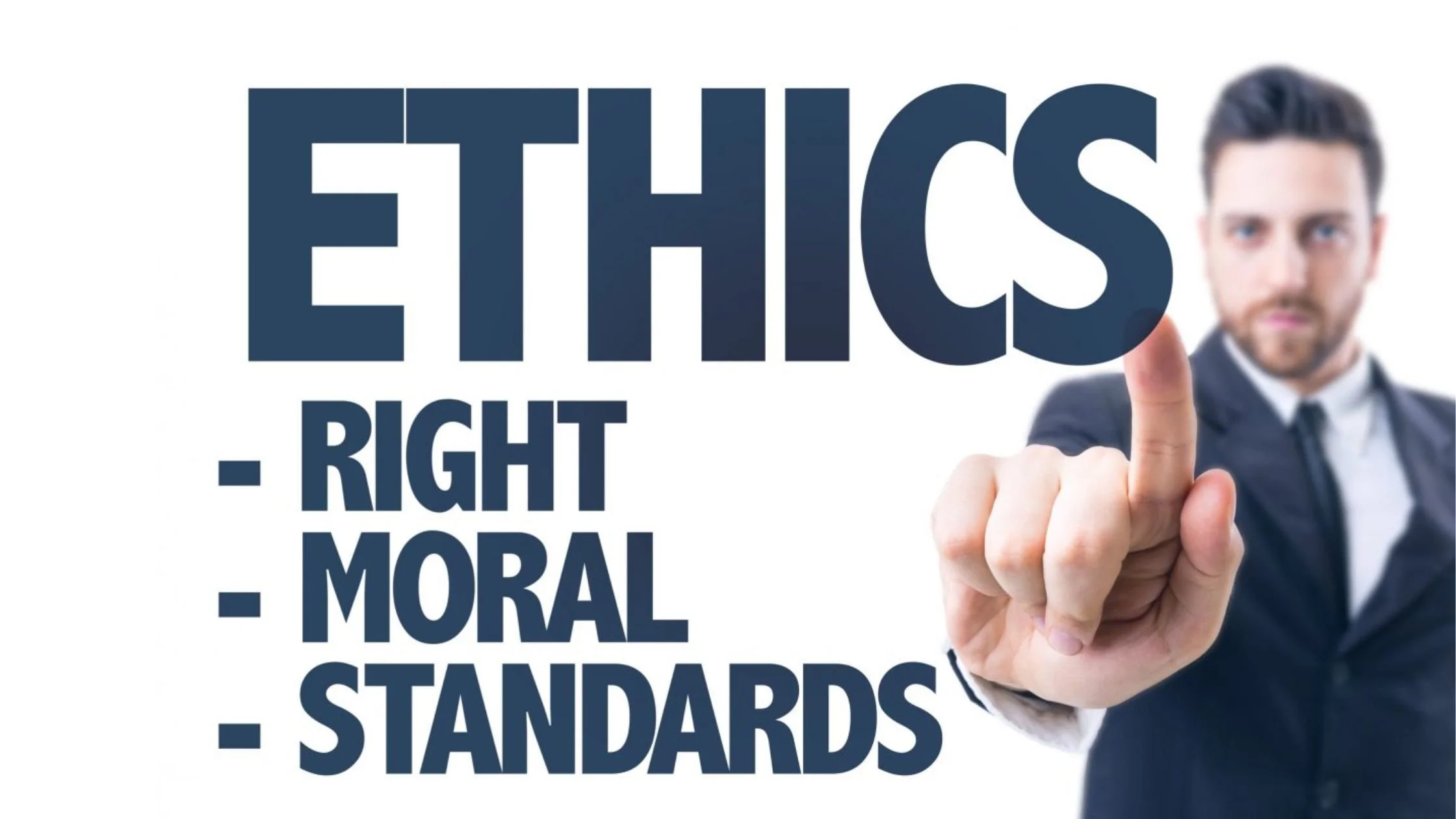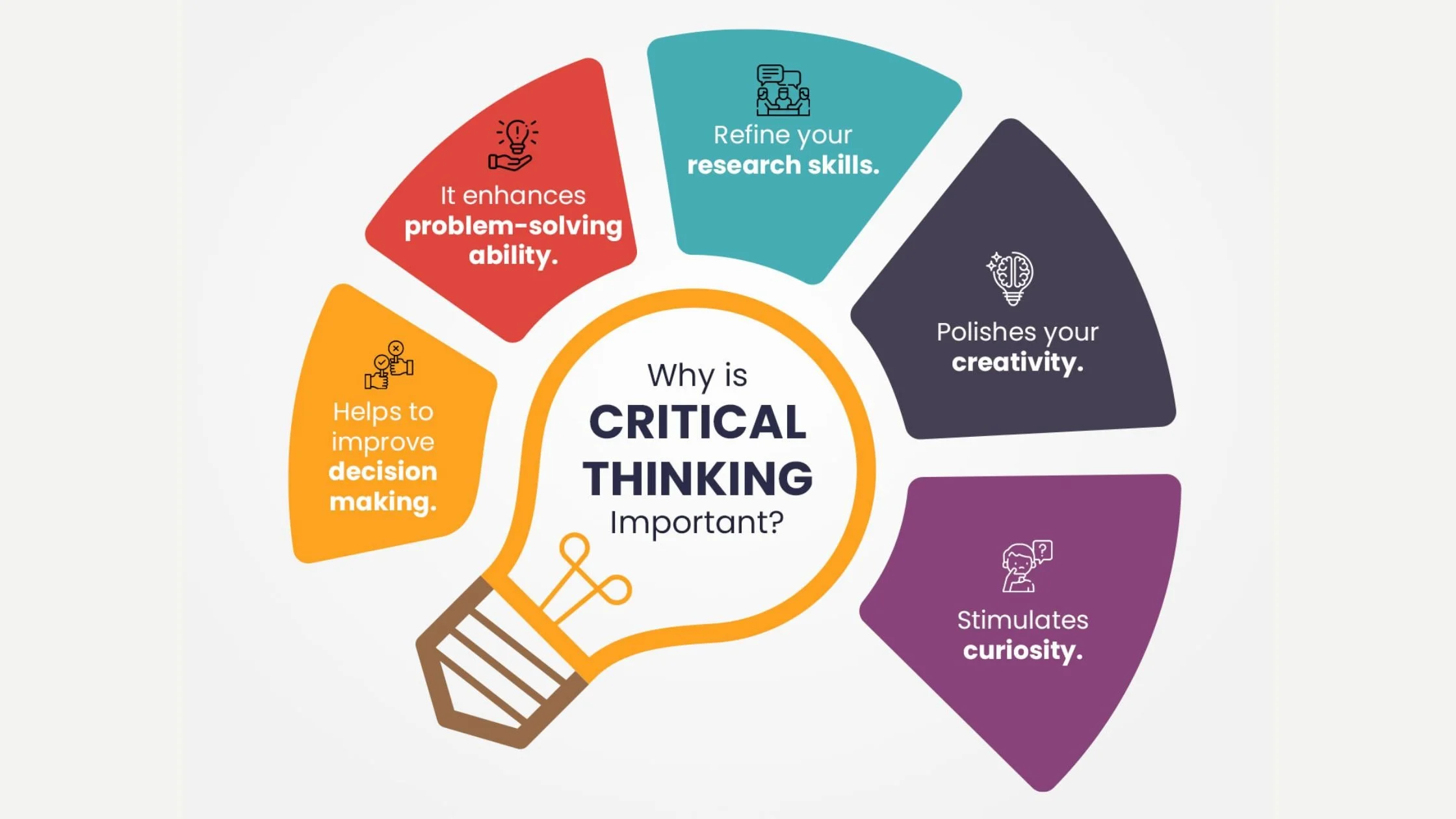Top 10 Skills to Seek When Hiring a Medical Scribe | Acmso
Hiring a medical scribe might sound like a simple task, but the reality is much more complex. Picture this: you’re looking for someone who can keep up with the fast-paced world of healthcare, understand medical terminology, multitask like a pro, and still maintain a cool composure in high-pressure situations. Sounds like a superhero, right? Well, almost! In this blog, we’ll break down the top 10 skills you need to seek when hiring a medical scribe—and trust me, it's more than just knowing how to type fast!
Top 10 Skills to Look for When Hiring a Medical Scribe
Medical scribes are the unsung heroes in the healthcare industry. They work tirelessly behind the scenes, helping to streamline medical documentation, assisting healthcare professionals, and ensuring that patient records are accurate and accessible. But not all medical scribes are created equal. The right scribe can elevate the productivity of your practice, ensuring that your workflow runs smoothly. Here are the top 10 skills to look for when hiring a medical scribe, ensuring you choose the best candidate for your needs.
1. Excellent Communication Skills
Effective communication is at the core of every medical scribe’s role, as it ensures the smooth flow of information between healthcare providers, patients, and medical records. Below are the key aspects of communication that every medical scribe must excel in:
Active Listening
Definition: The ability to listen attentively and understand not just what is being said, but also the context and non-verbal cues.
Importance: Ensures that all relevant information is captured, even during fast-paced or complex medical discussions.
Example: A physician mentions a patient's changing condition, and the scribe quickly absorbs and transcribes that into the medical record.
Precise Questioning for Clarification
Definition: Asking targeted questions to clarify ambiguous or incomplete information.
Importance: Guarantees accurate documentation by filling in any gaps or addressing uncertainties.
Example: If a doctor provides vague details, the scribe may ask follow-up questions to confirm the exact symptoms or treatment being referred to.
Conveying Complex Medical Jargon Simply
Definition: The ability to transcribe complicated medical terms into clear, understandable documentation.
Importance: Ensures that medical records are easy to read and comprehend by other healthcare professionals.
Example: Translating complex clinical terminology or diagnosis into simple language without losing accuracy.
Smooth Collaboration with the Healthcare Team
Definition: The scribe works closely with physicians, nurses, and other medical staff to gather and document information efficiently.
Importance: Fosters teamwork and reduces the chances of miscommunication or errors in patient care.
Example: A scribe may help a physician by interpreting shorthand or capturing notes while the healthcare provider focuses on the patient.
Minimizing Misunderstandings and Errors
Definition: Clear communication prevents the misinterpretation of patient details and medical instructions.
Importance: Ensures that all patient data is correctly recorded and understood, leading to improved patient care and reduced risk of errors.
Example: Clear communication ensures that a physician’s order is accurately documented and implemented.
By mastering these essential communication components, medical scribes not only help with documentation but also become key players in the healthcare team, contributing significantly to patient safety and care quality.
Related Blog: Medical Scribes: Key Roles and How to Become One
2. Unwavering Attention to Detail
In healthcare, precision is critical, and when it comes to medical documentation, the smallest mistake can have serious consequences. One misplaced entry or incorrect spelling could lead to errors in diagnosis, medication administration, or treatment planning, which could significantly affect patient outcomes. A medical scribe must have an impeccable ability to focus on even the smallest of details, ensuring that everything is documented accurately and thoroughly.
Focused and Thorough Documentation
Definition: The ability to capture every detail accurately, without omissions or errors, while paying close attention to every part of the patient’s medical history and visit.
Importance: Thorough documentation ensures that all relevant information is recorded and available to healthcare providers, which is crucial for delivering safe and effective care.
Example: Recording a patient’s full medical history, including any allergies or past surgeries, in a manner that provides a complete picture for the healthcare team.
Double-Checking Entries for Accuracy
Definition: Ensuring that all information entered into medical records is correct by reviewing it for errors before finalizing the documentation.
Importance: Double-checking entries helps prevent costly mistakes that could negatively impact patient treatment or care outcomes.
Example: A medical scribe might check the spelling of a medication or verify the dosage to ensure it matches the physician's instructions before completing the record.
Knowledge of Medical Terminology to Avoid Common Mistakes
Definition: Having a solid understanding of medical terminology and its proper usage is crucial to ensuring that all documentation is accurate.
Importance: With a strong grasp of medical terminology, scribes are less likely to confuse similar-sounding terms, which could lead to severe complications.
Example: Understanding the difference between “hypotension” (low blood pressure) and “hypertension” (high blood pressure) ensures accurate documentation of a patient's vital signs and medical history.
Why Attention to Detail is Non-Negotiable
Definition: In the healthcare field, attention to detail isn’t just a desirable trait—it’s essential. A small mistake can result in life-threatening consequences for a patient.
Importance: The accuracy of every detail, from documenting vital signs to tracking medications, plays a vital role in the overall success of a treatment plan.
Example: A missed entry about a patient’s allergy to penicillin could result in the wrong medication being administered, leading to a serious allergic reaction.
A medical scribe's unwavering attention to detail is non-negotiable—it's not just a requirement; it's a lifesaver. Whether you're documenting medications, vital signs, or patient histories, ensuring that every detail is captured correctly can be the difference between a positive health outcome and a preventable error.
Related Blog: Top 5 Jobs To Supercharge Your Medical School Journey
3. Ability to Multitask Efficiently
Healthcare environments are known for their fast pace, where every second counts and multiple tasks need to be managed simultaneously. Medical scribes must be able to juggle several responsibilities at once while maintaining their focus and accuracy. Whether it’s documenting patient interactions, managing Electronic Health Records (EHR) systems, or communicating with medical staff, the ability to multitask is not just important—it's essential for success in the role.
Managing Multiple Patient Records at Once
Definition: A medical scribe often handles several patient records simultaneously, requiring them to stay organized and prioritize documentation for each individual case.
Importance: Effective management of multiple records ensures that no information is overlooked, and the needs of each patient are addressed in a timely manner.
Example: While one physician is conducting a patient examination, the scribe may need to update the records of another patient, all while keeping track of new instructions from the healthcare team.
Switching Between Tasks Without Losing Focus
Definition: The ability to transition quickly from one task to another while maintaining a high level of accuracy and attention to detail.
Importance: In busy healthcare settings, scribes frequently shift from one responsibility to another, such as moving from taking notes on a patient’s symptoms to reviewing their medical history or processing prescriptions.
Example: A scribe may switch from documenting a patient's physical exam to taking notes on an ongoing conversation about a different patient's treatment plan without losing concentration.
Time Management to Meet Deadlines
Definition: Effectively managing time to ensure that all tasks are completed within the necessary time frame, especially during high-volume patient visits.
Importance: Time management skills ensure that a medical scribe can complete all required tasks—such as updating records, communicating with medical staff, and organizing patient data—without missing deadlines.
Example: A medical scribe might be tasked with completing documentation for several patients within a short window. Effective time management ensures each record is updated accurately and promptly.
Multitasking in High-Stress Environments
Definition: In high-stress environments like emergency rooms or busy clinics, the ability to multitask under pressure is even more critical.
Importance: The pressure to complete tasks quickly and accurately without compromising patient care is intense in these environments. A medical scribe must stay calm and organized, even under stressful conditions.
Example: In an emergency room, a scribe might need to manage multiple patient records, document critical information during high-stress procedures, and assist healthcare providers without becoming overwhelmed.
Multitasking is a crucial skill for any medical scribe. Whether it's managing multiple records, switching tasks seamlessly, or ensuring that deadlines are met in a high-stress setting, the ability to handle several responsibilities at once is vital. Without strong multitasking abilities, the smooth operation of a healthcare facility would be at risk, and the potential for errors would increase.
4. Basic Medical Knowledge and Terminology
While medical scribes are not required to be doctors, a foundational understanding of medical terminology and procedures is essential to the role. A well-rounded scribe should be familiar with common medical terms, diagnoses, and treatments to ensure that all documentation is accurate, comprehensive, and aligned with medical standards. Proper medical knowledge enhances the accuracy of recorded information and ensures that the scribe can effectively support healthcare professionals.
Medical Jargon and Abbreviations
Definition: Medical jargon consists of the specialized language used by healthcare professionals to describe conditions, treatments, and procedures. Abbreviations are commonly used in medical notes to streamline documentation.
Importance: A scribe’s familiarity with medical jargon and abbreviations ensures that they can quickly and accurately transcribe complex medical conversations into concise, understandable notes.
Example: Recognizing abbreviations like “BP” for blood pressure or “DOB” for date of birth allows a scribe to record information swiftly without errors.
Understanding of Common Medical Procedures
Definition: Knowing the basic procedures that healthcare providers commonly perform, such as physical exams, diagnostic tests, or surgical interventions, is key for a scribe’s documentation process.
Importance: A medical scribe with an understanding of these procedures can more accurately capture the details of the patient’s visit and help the healthcare team with real-time documentation.
Example: If a physician performs a biopsy or a routine checkup, the scribe should know the essential steps and what needs to be documented, such as the procedure performed, findings, and follow-up instructions.
Knowledge of Human Anatomy and Physiology
Definition: A basic understanding of the human body and how its systems function is fundamental for comprehending and recording patient information accurately.
Importance: A medical scribe who understands human anatomy and physiology is better equipped to follow medical discussions and document the appropriate body systems, symptoms, and diagnoses.
Example: If a physician mentions the patient’s cardiovascular system or describes an issue with the musculoskeletal system, the scribe should know the key structures and terminology involved to record it properly.
The Impact of Medical Background or Training
Definition: While a medical scribe does not need to have a medical degree, having a basic medical background or completing a formal training program in medical terminology can significantly improve their effectiveness.
Importance: With a solid understanding of medical language and procedures, scribes are more capable of accurately transcribing complex patient data, ensuring that the medical record reflects the true state of the patient’s health.
Example: Completing a medical terminology course or having prior experience in healthcare, such as being a medical assistant, can provide a scribe with the knowledge necessary to excel in their role.
Related Blog: Explore Benefits of Medical Scribing for Your Career
Basic medical knowledge and familiarity with terminology are crucial for medical scribes. By understanding common medical procedures, jargon, and human anatomy, scribes ensure that patient records are accurate, thorough, and in compliance with healthcare standards. A well-informed scribe is a key asset to any healthcare team, helping improve both the quality of care and the efficiency of the practice.
5. Proficiency with Technology
In today’s digital age, proficiency in technology is essential for medical scribes. This includes the ability to navigate Electronic Health Record (EHR) systems, transcribe medical notes accurately, and even use telemedicine platforms. They should also be able to troubleshoot minor tech issues to avoid delays in documentation.
Tech Skills Required:
Familiarity with EHR systems like Epic or Cerner
Comfortable using transcription software
Ability to troubleshoot basic IT issues
Medical scribes who are tech-savvy will help ensure a smooth workflow and prevent system-related interruptions that could delay care.
6. Teamwork and Collaboration
A medical scribe doesn’t work in isolation. They must interact regularly with doctors, nurses, and other healthcare professionals to gather information and ensure the proper documentation of patient data. Being a team player is crucial for success in this role.
Collaboration Skills Include:
Working in tandem with physicians to document patient care
Ability to receive and act on feedback
Active participation in team discussions about patient care
Scribes must also be able to adapt to the team dynamics and integrate into different departments within the healthcare setting.
7. Professionalism and Ethical Standards
Maintaining professionalism at all times is non-negotiable for medical scribes. From adhering to confidentiality protocols (like HIPAA) to being respectful and courteous to patients and colleagues, professionalism is a cornerstone of a medical scribe's role.
Professionalism Means:
Respecting patient confidentiality at all times
Upholding ethical standards in all situations
Maintaining composure in stressful scenarios
Your ideal scribe should be someone you can rely on to handle sensitive information with discretion and professionalism.
8. Adaptability and Flexibility
The healthcare industry is constantly evolving, and medical scribes must be able to adapt to new technologies, practices, and workflows. Whether it’s adjusting to a new EHR system or learning a new set of protocols, a good medical scribe must be willing to embrace change and evolve with the field.
Adaptability Skills Include:
Willingness to learn new tools and technologies
Flexibility to adapt to changing patient needs and environments
Openness to feedback and constructive criticism
Flexibility is key, especially as healthcare continues to modernize with telemedicine and new advancements in medical technology.
Related Blog: 12 Compelling Reasons to Become a Medical Scribe Today
9. Critical Thinking and Problem Solving
Medical scribes must be able to think on their feet. Whether it's deciding how to document a complex case or identifying discrepancies in a patient's record, critical thinking and problem-solving are essential for ensuring that the documentation is both accurate and comprehensive.
Critical Thinking Skills Include:
Analyzing complex medical situations
Identifying potential documentation errors before they occur
Making quick decisions that support the medical team
A medical scribe should be proactive in anticipating the needs of healthcare providers and filling in the gaps before errors occur.
10. Empathy and Compassion
Although a medical scribe’s role is mainly administrative, they should also possess a sense of empathy. Healthcare is about people, and a compassionate scribe can improve the patient experience by showing care and respect, even if they’re not directly involved in patient care.
Empathy in Action:
Showing understanding and patience when interacting with patients
Communicating with warmth and respect
Offering support during stressful medical situations
Patients who feel cared for and respected are more likely to have a positive experience, even if their interaction with the scribe is brief.
Facts About Hiring a Medical Scribe:
Scribes Can Improve Patient Satisfaction: Studies have shown that the presence of a medical scribe in the room can lead to higher patient satisfaction rates due to quicker documentation.
Association of Medical Scribes in Primary Care With Physician Workflow and Patient Experience
Scribes Are Often Used in Telemedicine: Medical scribes are increasingly being used for telemedicine appointments, helping to document virtual patient visits in real-time.
How Providers Can Optimize Effective and Safe Scribe Use: a Qualitative Study
Medical Scribes Are Key to Reducing Physician Burnout: By handling documentation, scribes free up physicians to focus on patient care, reducing stress and burnout.
Impact of Medical Scribes on Physician and Patient Satisfaction in Primary Care
Scribes Can Specialize in Specific Fields: Some scribes specialize in specific fields like cardiology or orthopedics, enhancing the efficiency of documentation in specialized medical practices.
The Overlooked Benefits of Medical Scribes
Scribes Are Becoming More Common in Hospitals: Due to their ability to increase efficiency and improve documentation accuracy, many hospitals are now hiring scribes across multiple departments.
Effect of Medical Scribes on Throughput, Revenue, and Patient and Provider Satisfaction
A Scribe’s Role Is Expanding: In some healthcare systems, scribes are being trained to assist with patient intake, medical coding, and even order entry tasks.
How Providers Can Optimize Effective and Safe Scribe Use: a Qualitative Study
Scribes Help with Compliance: Scribes ensure that healthcare providers meet legal and regulatory documentation standards, protecting the practice from legal issues.
Methods for Large-Scale Quantitative Analysis of Scribe Impacts on Clinical Documentation
The Demand for Scribes Is Growing: As the healthcare industry becomes more reliant on electronic health records, the need for medical scribes is expected to continue rising.
The Overlooked Benefits of Medical Scribes
Scribes Are Not Just for Doctors: Nurses, medical assistants, and even physician assistants can benefit from having scribes assist with their documentation tasks.
Impact of Medical Scribes on Physician and Patient Satisfaction in Primary Care
The Role of a Scribe Is Not Just About Typing: Medical scribes often need to make quick decisions and interpret medical information accurately while documenting in real-time.
Impact of Scribes on Physician Satisfaction, Patient Satisfaction, and Charting Efficiency
Conclusion
Hiring the right medical scribe is crucial for maintaining a high standard of care in your healthcare practice. By focusing on essential skills like communication, attention to detail, adaptability, and medical knowledge, you’ll ensure that your practice runs smoothly and efficiently.
If you’re looking to hire top-notch medical scribes, consider investing in Medical Scribe Certification to ensure that your candidates are well-equipped to handle the demands of this important role. At ACMSO, we offer one of the best Medical Scribe Certification programs to prepare professionals for success.
FAQs
-
A medical scribe assists healthcare providers by documenting patient information, managing EHRs, and supporting medical teams in real-time during patient visits.
-
Key skills include communication, attention to detail, medical knowledge, tech proficiency, multitasking, and adaptability to new technologies.
-
Yes, a foundational understanding of medical terminology is essential for accurate documentation and effective communication with healthcare teams.
-
To become a medical scribe, you can complete a medical scribe certification program, often offered by medical training schools or online platforms.
-
The salary of a medical scribe varies based on experience, location, and certification, with the average salary ranging from $30,000 to $50,000 per year.
-
Yes, the demand for medical scribes is growing as healthcare providers seek ways to streamline documentation and improve patient care.
-
Yes, some medical scribes work remotely, especially those involved in telemedicine or supporting healthcare providers with virtual visits.
-
You can find qualified medical scribes through specialized staffing agencies, professional training programs, or online job boards.




